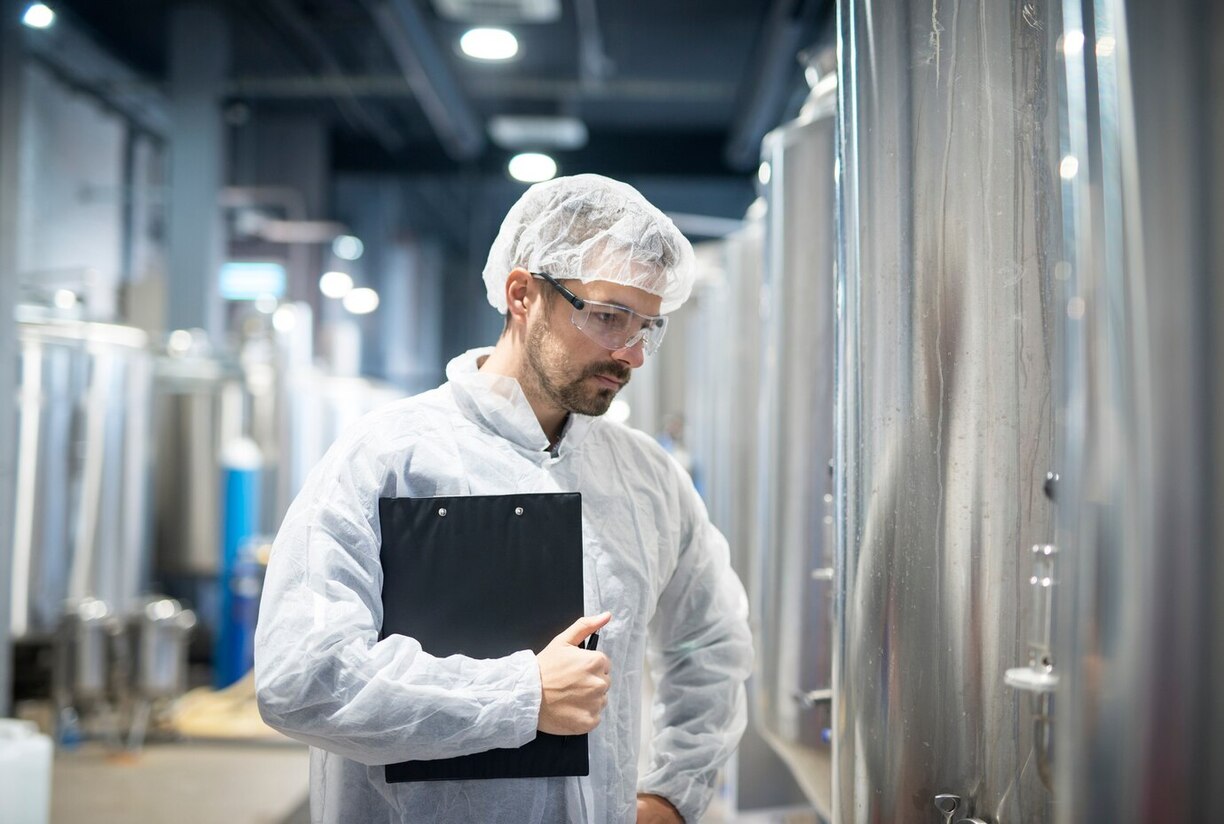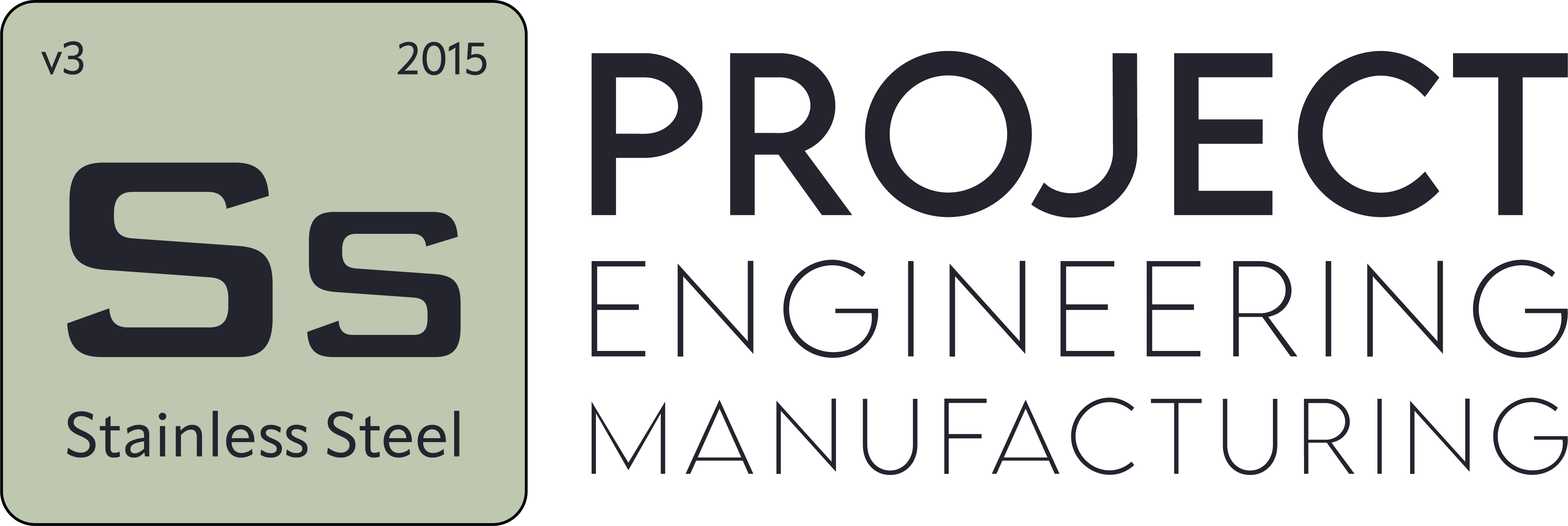Hygienic Stainless Steel Manufacturer
- Blog
- Hygienic Stainless Steel Manufacturer
Hygienic Stainless Steel Manufacturer
Hygienic Stainless Steel Manufacturer: Meeting the Demands of Sanitary Industries
In sectors where hygiene and cleanliness requirements are critical, such as food processing, pharmaceuticals, and healthcare, hygienic stainless steel plays a vital role. Stainless steel is considered an ideal material for hygienic environments due to its durability, resistance to corrosion, and non-reactivity. Companies that produce hygienic stainless steel ensure that their products meet the stringent requirements of various industries, offering solutions that provide the highest levels of hygiene, safety, and durability. In this article, we will explore the role of hygienic stainless steel manufacturers, the importance of stainless steel in hygienic applications, and the reasons why stainless steel is preferred as an ideal material for hygienic environments.
What Is Hygienic Stainless Steel?
Hygienic stainless steel is a type of stainless steel specifically designed to meet the requirements of hygienic applications. It is widely used in food production, the pharmaceutical industry, medical devices, and other environments where contamination must be minimized. This material is corrosion-resistant, easy to clean, and non-reactive, allowing it to be used without affecting the products or environment it comes into contact with.
One of the key features of hygienic stainless steel is its smooth surface, which prevents the accumulation of bacteria, mold, or other contaminants. This feature is essential for maintaining a clean environment and preventing the risk of cross-contamination. Additionally, hygienic stainless steel is resistant to various chemicals, making it ideal for environments exposed to aggressive cleaning agents or harsh production processes.
Why Is Stainless Steel Preferred for Hygienic Applications?
Stainless steel is an ideal material for hygienic applications for several reasons. Its excellent mechanical properties and high corrosion resistance make it suitable for a wide range of applications. The primary reasons for preferring stainless steel in hygienic applications include:
- Corrosion Resistance: Stainless steel exhibits high resistance to corrosion, which is critical in environments constantly exposed to moisture and cleaning chemicals. This resistance ensures that the material maintains its structural integrity over time, remaining durable even under harsh conditions.
- Easy to Clean: The smooth, non-porous surface of stainless steel makes it easy to clean and disinfect. In environments where hygiene is critical, this feature prevents the accumulation of contaminants and ensures that hygiene standards are maintained.
- Durability: Stainless steel is extremely durable and can withstand harsh conditions such as cleaning and chemical exposure. This long-lasting structure provides a long-term solution for hygienic applications.
- Non-Reactive: Stainless steel does not react with food, liquids, or pharmaceuticals, preventing unwanted chemicals or particles from transferring to products. This property is critical for preventing contamination and preserving product purity.
- Regulatory Compliance: Hygienic stainless steel meets the stringent requirements set by regulatory bodies such as the FDA for food production, pharmaceuticals, and medical devices. This ensures that products made from hygienic stainless steel are safe and compliant with industry standards.
Applications of Hygienic Stainless Steel
Hygienic stainless steel is widely used in numerous industries where hygiene and safety are paramount. The main application areas of hygienic stainless steel include:
- Food Processing: In the food processing industry, hygienic stainless steel is used in tanks, mixers, conveyors, and other machinery that come into contact with food products. Its corrosion resistance and easy-to-clean structure make it an ideal material for food production, ensuring that products are stored and processed under hygienic conditions.
- Pharmaceutical Industry: The pharmaceutical industry requires materials that do not react with drugs or chemicals. Hygienic stainless steel is used in storage tanks, reactors, and pipelines, enabling pharmaceuticals to be produced in a clean and sterile environment. Its non-reactivity and corrosion resistance are crucial for maintaining product safety and purity.
- Medical Devices: Hygienic stainless steel is also used in the production of medical devices such as surgical instruments, implants, and diagnostic equipment. Its corrosion-resistant structure and ease of cleaning make it suitable for sterile environments, ensuring patient safety.
- Water Treatment: In water treatment facilities, hygienic stainless steel is used in various components, including tanks, filtration systems, and pipes. Its resistance to corrosion and chemicals ensures the preservation of water purity.
- Cosmetics and Personal Care Products: The cosmetics industry uses hygienic stainless steel in production equipment such as mixers, agitators, and storage tanks. This material ensures that cosmetic products are manufactured in a clean and contamination-free environment, meeting the industry’s high standards.

Production Process of Hygienic Stainless Steel Products
The production of hygienic stainless steel products involves several key stages to ensure the material meets the necessary standards for hygienic applications. The production process typically includes the following steps:
- Material Selection: The first step in producing hygienic stainless steel products is selecting the appropriate grade of stainless steel. Commonly used grades in hygienic applications are 304 and 316 stainless steel, which offer excellent corrosion resistance and ease of cleaning.
- Forming and Shaping: The stainless steel is then shaped into the desired form through processes such as welding, rolling, and bending. Maintaining precise tolerances during the shaping process ensures that the final product meets size, shape, and functionality requirements.
- Surface Treatment: After shaping, the surface is treated to remove any sharp edges or contaminants. This process ensures the surface is smooth and non-porous, facilitating cleaning and preventing bacterial buildup.
- Polishing and Surface Finishing: Stainless steel products are often polished to achieve a smooth, mirror-like surface. This polishing process enhances the product’s appearance while also increasing its corrosion resistance and ease of cleaning.
- Quality Control and Testing: Before being released for use, hygienic stainless steel products undergo rigorous quality control and testing processes. These tests include visual inspections, mechanical testing, and chemical analysis. The goal is to ensure the product complies with industry standards and regulatory requirements.
Advantages of Hygienic Stainless Steel
Hygienic stainless steel offers significant advantages in many industries, particularly where high hygiene standards are required. These advantages include:
- Long-Term Durability: Hygienic stainless steel is corrosion-resistant and long-lasting, extending the lifespan of products and reducing maintenance requirements. This durability provides a cost-effective solution in the long run.
- Enhanced Hygiene Standards: The smooth, non-porous surface of hygienic stainless steel prevents the accumulation of bacteria and other pathogens, ensuring products are stored and processed in a clean environment. This is critical in industries like food processing and pharmaceutical production.
- Regulatory Compliance: Hygienic stainless steel meets the stringent requirements set by regulatory bodies, ensuring that products made from it are safe and compliant with industry standards.
- Easy Maintenance: Hygienic stainless steel is easy to clean and maintain, providing a significant advantage in environments where hygiene is paramount.
- Versatility: Hygienic stainless steel can be used in a wide range of applications, from food processing equipment to medical devices. Its versatility makes it a preferred choice in many industries with high hygiene standards.
Challenges in Hygienic Stainless Steel Production
While hygienic stainless steel offers many advantages, there are some challenges encountered during its production and use. These challenges include:
- Cost: The production of hygienic stainless steel products can be more expensive than other materials. However, the long-term benefits, such as durability, hygiene, and regulatory compliance, often justify this cost.
- Complex Production Process: The production process for hygienic stainless steel products is more complex than that of standard materials and requires specialized equipment and skilled labor. This complexity can increase production costs and lead times.
- Maintenance and Inspection: Although hygienic stainless steel is durable, it requires regular maintenance and inspection. This is essential to ensure that hygiene standards are consistently met, particularly in high-use environments.
The Future of Hygienic Stainless Steel
The future of hygienic stainless steel will be shaped by advancements in material science and production techniques. The growing demand for food safety, pharmaceutical production, and healthcare products will increase the need for hygienic stainless steel solutions. Additionally, innovations in smart technology will enhance the functionality of hygienic stainless steel products, improving operational efficiency and hygiene standards.
Hygienic stainless steel is an indispensable material in industries with high hygiene standards, particularly in areas such as food processing, pharmaceuticals, and medical devices. Features such as corrosion resistance, cleanability, and non-reactivity make it an ideal material for hygienic applications. Hygienic stainless steel manufacturers ensure that their products meet the highest hygiene and safety standards, offering solutions that enhance product quality and regulatory compliance. As industries continue to prioritize hygiene, hygienic stainless steel will remain a critical material for maintaining clean, safe, and efficient production environments.


